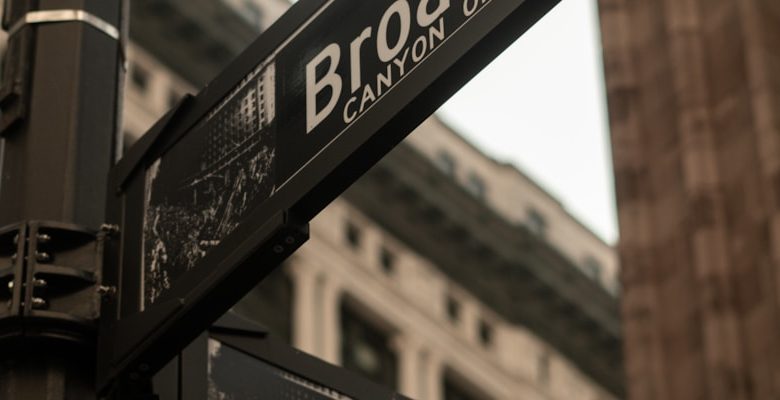Institutional Investors Flock to Crypto: What It Means for Retail Traders

- The Rise of Institutional Investors in the Crypto Market
- Understanding the Impact of Institutional Investors on Cryptocurrency
- How Institutional Investors Are Shaping the Future of Crypto Trading
- What Retail Traders Need to Know About Institutional Interest in Cryptocurrency
- Exploring the Relationship Between Institutional Investors and Retail Traders in the Crypto Space
- Key Takeaways for Retail Traders from the Influx of Institutional Capital into Crypto Markets
The Rise of Institutional Investors in the Crypto Market
With the increasing interest of institutional investors in the crypto market, there has been a notable shift in the dynamics of the industry. Traditionally dominated by retail traders, the influx of institutional players has brought about significant changes in how cryptocurrencies are traded and perceived.
One of the key impacts of the rise of institutional investors in the crypto market is the influx of capital. Institutional players bring with them large sums of money, which can lead to increased liquidity and reduced price volatility. This can be both a positive and a negative for retail traders, as it can provide more stable market conditions but also potentially limit the opportunities for high returns.
Furthermore, the involvement of institutional investors can also bring a sense of legitimacy to the crypto market. As more traditional financial institutions and big-name investors enter the space, it can help to dispel some of the skepticism and uncertainty that has surrounded cryptocurrencies in the past.
Understanding the Impact of Institutional Investors on Cryptocurrency
Understanding the impact of institutional investors on cryptocurrency is crucial for retail traders looking to navigate the increasingly complex market. Institutional investors, such as hedge funds and asset managers, have been showing a growing interest in cryptocurrencies in recent years.
One of the main reasons for this is the potential for high returns in the volatile crypto market. Institutional investors have the resources and expertise to conduct in-depth research and analysis, allowing them to make informed decisions about their cryptocurrency investments.
Furthermore, the entry of institutional investors into the crypto space can lead to increased liquidity and market stability. This can benefit retail traders by providing a more efficient and reliable trading environment.
However, it is important for retail traders to be aware of the potential downsides of increased institutional involvement in cryptocurrency. Institutional investors may have the power to influence market prices and manipulate the market in their favor, which could lead to losses for retail traders.
Overall, understanding the impact of institutional investors on cryptocurrency is essential for retail traders to make informed decisions and navigate the evolving crypto landscape effectively.
How Institutional Investors Are Shaping the Future of Crypto Trading
Institutional investors play a significant role in shaping the future of crypto trading. As more and more large financial institutions and corporations enter the crypto market, their actions and decisions have a profound impact on the overall landscape. These institutional investors bring with them a level of legitimacy and credibility that was previously lacking in the crypto space. Their participation also leads to increased liquidity and market stability, which can benefit all traders, including retail investors.
One way in which institutional investors are influencing crypto trading is through the introduction of new financial products and services tailored to their needs. For example, we are seeing the emergence of crypto exchange-traded funds (ETFs) and other investment vehicles that cater to institutional clients. These products not only make it easier for large investors to gain exposure to cryptocurrencies but also help to further integrate digital assets into the traditional financial system.
Furthermore, the influx of institutional capital into the crypto market is driving the development of more robust infrastructure and regulatory frameworks. This, in turn, can help to mitigate some of the risks associated with trading digital assets and make the market more attractive to a broader range of investors. As institutional investors continue to pour money into crypto, we can expect to see further advancements in technology, security, and compliance that benefit all participants in the ecosystem.
What Retail Traders Need to Know About Institutional Interest in Cryptocurrency
Understanding institutional interest in cryptocurrency is crucial for retail traders looking to navigate the market effectively. Institutional investors, such as hedge funds, family offices, and pension funds, have been increasingly flocking to the crypto space in recent years.
One key aspect that retail traders need to know about institutional interest in cryptocurrency is the impact it can have on market dynamics. When large institutional players enter the market, they can bring significant liquidity and capital, which can lead to increased price volatility.
Additionally, institutional investors often have access to resources and information that retail traders may not have, giving them a potential edge in the market. Retail traders should be aware of this power dynamic and adjust their trading strategies accordingly.
Moreover, institutional interest in cryptocurrency can also bring legitimacy to the market. As more institutional players enter the space, it can help to reduce some of the stigma and skepticism surrounding cryptocurrencies, leading to broader adoption and acceptance.
Overall, retail traders should stay informed about institutional interest in cryptocurrency and consider how it may impact their trading decisions. By keeping a close eye on market trends and developments related to institutional investors, retail traders can position themselves for success in the dynamic and rapidly evolving crypto market.
Exploring the Relationship Between Institutional Investors and Retail Traders in the Crypto Space
In the world of cryptocurrency, there is a growing interest in the relationship between institutional investors and retail traders. Institutional investors, such as hedge funds and investment banks, have been increasingly flocking to the crypto space in recent years. This influx of institutional money has the potential to have a significant impact on the market dynamics and trading patterns in the crypto space.
One of the key aspects of the relationship between institutional investors and retail traders is the potential for increased liquidity in the market. Institutional investors typically trade in large volumes, which can help to stabilize prices and reduce volatility. This can be beneficial for retail traders, as it can make it easier to enter and exit positions without causing significant price swings.
Another important aspect of this relationship is the potential for increased legitimacy in the crypto space. The presence of well-known institutional investors can help to attract more mainstream attention and investment to the market. This, in turn, can help to boost confidence among retail traders and encourage more widespread adoption of cryptocurrencies.
However, it is also important to recognize that the influx of institutional investors into the crypto space can bring challenges for retail traders. Institutional investors often have access to more resources and information than retail traders, which can give them a competitive advantage in the market. Retail traders may need to adapt their strategies and stay informed about market trends to remain competitive in this changing landscape.
Overall, the relationship between institutional investors and retail traders in the crypto space is a complex and evolving one. While there are opportunities for increased liquidity and legitimacy, there are also challenges that retail traders may need to navigate. By staying informed and adapting to changing market dynamics, retail traders can position themselves for success in this new era of institutional involvement in cryptocurrencies.
Key Takeaways for Retail Traders from the Influx of Institutional Capital into Crypto Markets
As retail traders in the crypto markets, it is essential to understand the implications of the recent surge in institutional capital flowing into the space. This influx of institutional investors signifies a growing acceptance and adoption of cryptocurrencies as a legitimate asset class.
One key takeaway for retail traders is the potential for increased market liquidity. With more institutional players entering the market, there will likely be higher trading volumes and tighter bid-ask spreads, making it easier for retail traders to execute trades at favorable prices.
Additionally, the presence of institutional investors can bring more stability to the crypto markets. Institutions typically have a longer-term investment horizon and a more risk-averse approach, which can help dampen price volatility and reduce the likelihood of extreme market swings.
Furthermore, retail traders can benefit from the increased credibility and mainstream acceptance that comes with institutional involvement. As more traditional financial firms and big-name investors dip their toes into the crypto space, it can help legitimize the industry and attract even more attention and investment.
Overall, retail traders should view the influx of institutional capital into the crypto markets as a positive development. By understanding the implications and adapting their trading strategies accordingly, retail traders can position themselves to take advantage of the opportunities that come with increased institutional involvement in the space.



